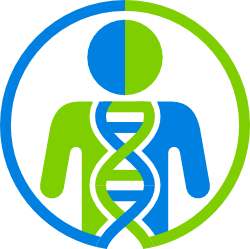The Personal Genome Project
The Personal Genome Project, initiated in 2005, is a vision and coalition of projects across the world dedicated to creating public genome, health, and trait data. Sharing data is critical to scientific progress, but has been hampered by traditional research practices. The PGP approach is to invite willing participants to publicly share their personal data for the greater good.

Local Projects
Harvard PGP (United States)
Founded in August 2005, the Harvard Personal Genome Project is the pilot PGP site, and is based in George Church's laboratory at Harvard Medical School.
International Projects
The Global Network of Personal Genome Projects includes researchers at leading institutions around the globe:
-
Harvard PGP (United States)
Founded in August 2005, the Harvard Personal Genome Project is the pilot PGP site, and is based in George Church's laboratory at Harvard Medical School.
-
PGP Canada (Canada)
Founded in December 2012, PGP Canada is operated by the McLaughlin Centre at the University of Toronto, and The Centre for Applied Genomics at the Hospital for Sick Children.
-
PGP UK (United Kingdom)
Founded in November 2013, PGP UK is led by Stephen Beck at University College London.
-
Genom Austria (Austria)
Founded in November 2014, Genom Austria is based at the CeMM Research Center for Molecular Medicine of the Austrian Academy of Sciences.
-
PGP China (People's Republic of China)
Announced in October 2017, The Personal Genome Project in China (PGP China) is led by Professor Li Jin at Fudan University, Shanghai. PGP China is now collecting contact information from interested participants and potential collaborators.
Global Network Guidelines
Members of the Global Network of Personal Genome Projects adhere to the following guidelines:
-
Public Data. Participants are invited to publicly share their genomic and trait data in an integrated, publicly-accessible format using a CC0 waiver or equivalent public domain license.
-
Non-anonymous. The risks of participant re-identification are addressed up front, as an integral part of the consent and enrollment process; neither anonymity nor confidentiality of participant identities or their data are promised to research participants.
- Equal access. Participants are provided access to their individual research data in a timely and complete fashion (i.e., raw data and not just summary results, where feasible).
- Oversight. Each member must at all times maintain current Institutional Review Board (IRB) approval or local equivalent, and will work with PersonalGenomes.org to continue to implement identified best practices for responsible public genomics research.
- Not for profit. The research project is managed or sponsored by a non-profit organization (or local equivalent). In addition, other than purposes of reasonable cost recovery, the member shall not sell or license participant data or tissues.